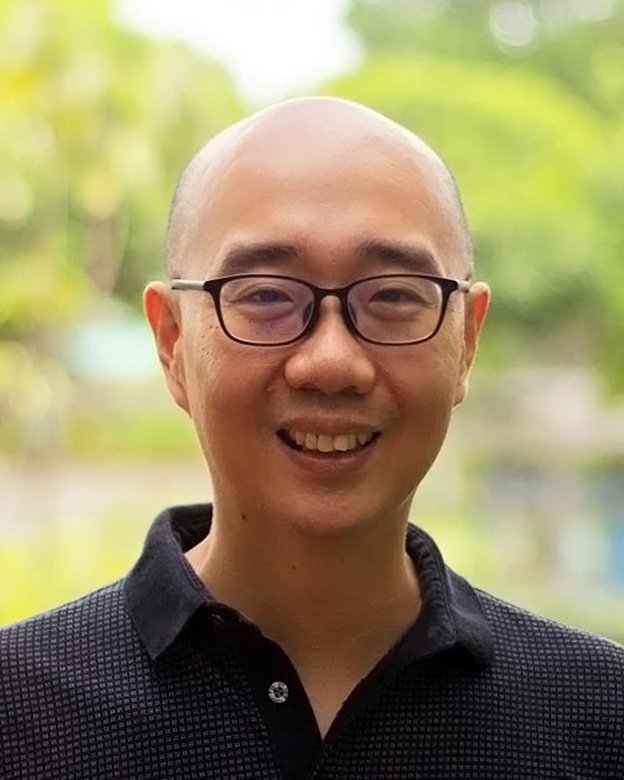Yale-NUS faculty tackle food insecurity in the ASEAN region
Yale-NUS professors in Environmental Studies advance food security research and policy-making in Southeast Asia
When Associate Professor of Social Sciences (Environmental Studies) Marvin Joseph Fonacier Montefrio first moved to Singapore, he was fascinated by the city-state’s vibrant urban agriculture movements. His interest in the topic was bolstered during the COVID-19 pandemic, when food supply chain disruptions exacerbated the extreme hunger a lot of marginalised communities were experiencing, and more and more households started resorting to farming food in vacant community spaces.
His observations sparked the inspiration for his current research project, “Emergence of Urban Agriculture in Southeast Asia”. Using a novel comparative analysis approach, Assoc Prof Montefrio analyses the emergence of urban agriculture in Bangkok, Manila and Singapore, with emphasis on the social, political, economic, cultural, and material dimensions of farming food in megacities.

Associate Professor of Social Sciences (Environmental Studies) Marvin Joseph Fonacier Montefrio’s latest research project explores urban agriculture movements in Bangkok, Manila, and Singapore.
Assoc Prof Montefrio shared that choosing a comparative approach was advantageous as it allowed him to better uncover the factors underlying the “complex assembly of urban agriculture knowledge, practices, and institutions in the three mega metropolises”.
“While these three metropolises have striking similarities in the way urban agriculture has emerged in their respective urban spaces, there are fascinating differences as well. Knowing more about these similarities and differences could help inform policies and practices that could help bolster meaningful forms of urban agriculture in Southeast Asia,” he added.
Indeed, urban agriculture could potentially alleviate food insecurity amongst urban households and communities in Southeast Asia, specifically for communities experiencing livelihood precarity and chronic hunger.
Nevertheless, according to Assoc Prof Montefrio, “it all depends on the ways that growing food in urban spaces are promoted”. For example, high-technology forms of production may ensure higher volumes of food production, but might not necessarily address the food security needs of urban settlers living in precarity: High-technology forms of production often yield high-value crops, such as salad greens, that precarious households and communities do not consume or are unable to access.
“Urban agriculture movements and programmes should always keep equitable food access and utilisation in mind,” said Assoc Prof Montefrio.
Another project that Assoc Prof Montefrio is pursuing is “Urban-Rural Linkages, Extreme Weather and Food Security”, in collaboration with Assistant Professor of Social Sciences (Environmental Studies) Anthony Medrano as well as scholars from the University of the Philippines. Using Capiz, a province in the Western Visayas region of Philippines, as the primary case study, the project strives to explore the relations among individuals, households and institutions in urban and rural spaces in negotiating food security in the context of rising extreme weather events.
 Assistant Professor of Social Sciences (Environmental Studies) Anthony Medrano is a collaborator in the project “Urban-Rural Linkages, Extreme Weather and Food Security” whose primary role is to examine the historical side of extreme weather events in the Philippines.
Assistant Professor of Social Sciences (Environmental Studies) Anthony Medrano is a collaborator in the project “Urban-Rural Linkages, Extreme Weather and Food Security” whose primary role is to examine the historical side of extreme weather events in the Philippines.
Capiz has been hard-hit by several super typhoons over the last ten years. Many natives of Capiz (Capizeños) rely on subsistence farming, such as growing rice and upland vegetables, and fishing. As their living conditions are extremely precarious, these local communities face challenges in accessing food whenever super typhoons arise.
“Thus, there is a concern that the food security of rural and urban settlers living in precarity are increasingly declining as they experience more and more unpredictable and extreme weather events due to climate change”, said Assoc Prof Montefrio.
Assoc Prof Montefrio shared that the collaboration with Asst Prof Medrano is “ideal” in light of the project goals. Asst Prof Medrano’s specific role involves delving deeper into the historical side of extreme weather events in Capiz. With the help of Yale-NUS student research assistants Misaki Tan (Class of 2023), Bryanna Mariñas (Class of 2024), and Anastasia Kurniadi (Class of 2024), Asst Prof Medrano sources for weather bulletins, digitises them, extracts relevant information, and puts them together in a historical weather database. Altogether, the collaboration enables them to trace longer-term patterns surrounding the issue.
In time to come, Assoc Prof Montefrio hopes that the research findings will furnish valuable insights that will advance policy-making in Southeast Asia. “Our findings will hopefully unravel the complex mechanisms by which households and institutions navigate and negotiate precarity and food insecurity, thus helping us figure novel ways in which policy and governance, broadly speaking, can intervene. The findings could potentially be valuable, given the increasing vulnerability and precarity of both rural and urban populations in the monsoon regions of Southeast Asia.”





